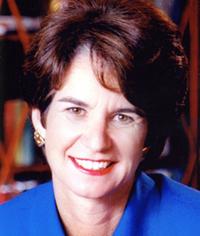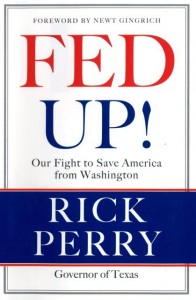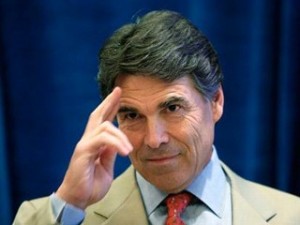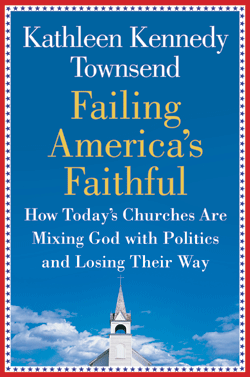 A few weeks ago, I wrote a piece asking whether Governor Rick Perry could call himself a Christian given his opposition to government actions to help the hungry, aged, and ill. Not surprisingly, many challengedmy view of Christianity. In letter after letter they pointed out that Christ spoke to individuals, not government. My observation that He was speaking to a conquered people, not free individuals who could use their power to make a more just state, was not convincing. My reference to the prophets Micah, Amos, Jeremiah, and Isaiah, each of whom called on governmental leaders to help the poor, was dismissed as being from the “Old Testament.”
A few weeks ago, I wrote a piece asking whether Governor Rick Perry could call himself a Christian given his opposition to government actions to help the hungry, aged, and ill. Not surprisingly, many challengedmy view of Christianity. In letter after letter they pointed out that Christ spoke to individuals, not government. My observation that He was speaking to a conquered people, not free individuals who could use their power to make a more just state, was not convincing. My reference to the prophets Micah, Amos, Jeremiah, and Isaiah, each of whom called on governmental leaders to help the poor, was dismissed as being from the “Old Testament.”
I will surely return to the issue of Christianity again, but I devote this piece to Rick Perry’s character and the character he would nurture in American citizens. Teddy Roosevelt said, “Character, in the long run, is the decisive factor in the life of an individual and of nations alike.” So what is the character that Perry embodies? What is his view of the American citizen and the citizen’s responsibility to our country and to one’s fellows?
His persona evokes the rugged individualist. His warning to Ben Bernanke, chairman of the Federal Reserve, not to come to Texas so that he can avoid being subjected to “real ugly” frontier justice evidences a character antithetical to one of the crowning achievements of the United States — a nation under law, not men. In a phrase, he dismisses the Bill of Rights — due process, trial by jury, the right to confront one’s accuser.
The real question is not what character he would make of the United States but whether he believes in America at all. He has threatened to secede. Central to his campaign is his pledge to shrink the federal government — making it impossible for our noble nation to lead the world, to serve as the “city on the Hill.”
Perry may want to pretend that he is taking America back to a better past, but his actions are part of the movement away from nation-states, where countries are largely irrelevant. The notion that we are at the end of the need for nation-states is gaining more adherents globally. The fortunate few, commonly referred to as the Davos groupies, hang out with the other well off and well-heeled all over the world. Summering in Europe, wintering in Colorado, the global elite have more in common with and feel more loyal to their carefully connected crowd than with their fellow citizens. When one’s loyalty lies with one’s own class, where does that leave one’s country?
In declaring his wish to shrink the size of government, Perry believes that government should have as little role in people’s lives as possible. No investment in education, science research, building the railroads, highways, or sewage systems of the future. Why care about America’s future, why set inspirational goals that bring people together, if you don’t believe in “We the people”?
Nationalism, patriotism, commitment to one another are for Perry an anachronism, a thing of the past. He has not said that those with the greatest wealth, talent, and circumstances have any special responsibility to our country or their fellow citizens. He has not said we are all Americans together. Rather, he seems to be able to watch human suffering with equanimity — as though America should be a place of survival of the fittest. No Social Security, no Medicare, no unemployment insurance, no laws to protect clean air, clean water. When hurricanes, tornadoes, earthquakes, and flood destroy home and communities — no FEMA, no help. “We” are on our own.
 In his book Fed Up!: Our Fight to Save America From Washington, Perry writes that the 16th Amendment, which gave birth to the federal income tax, was “the great milestone on the road to serfdom,” because it represented “the birth of wealth redistribution in the United States.”
In his book Fed Up!: Our Fight to Save America From Washington, Perry writes that the 16th Amendment, which gave birth to the federal income tax, was “the great milestone on the road to serfdom,” because it represented “the birth of wealth redistribution in the United States.”
Individualism, self-reliance, self-respect — these are great virtues, useful in many fields of endeavor. But they are not enough to sustain a nation. Virtues don’t spring into being in a moment. They need to be exercised and practiced. Nations at war need courage, quick thinking, and selflessness. Nations at peace require that sense of duty to others. No man goes into a burning building for mere money. Nor does a fierce individualism nurture the patience that a teacher requires, the love given by a hospice nurse caring for a dying man.
Citizens’ moral compasses do not stem only from their faith. Government also defines the moral standard of a nation. If we are told that blacks are worth but three-fifths of whites, many will see this as the acceptable treatment of their fellow man. Likewise, when the government declares it illegal to discriminate on the basis of race, we see that discrimination is also wrong.
When a candidate like Governor Perry boasts that he will shrink government by cutting those programs that grasp the nation’s imagination of what we can do together, he is saying that America does not need the one institution in which we make our most solemn decisions together. We need not nurture a nation of laws, nor educate the young, nor protect the elderly. Teddy Roosevelt took on the trusts, protected the environment, made America more just. The character of the nation improved with his leadership. Can it improve with Perry’s?
(Cross-posted, with permission of the author, from Atlantic.com)











Leave a Reply